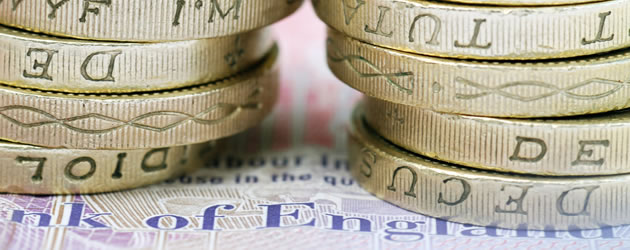- Markets rocked by unexpected Brexit win – EUR GBP exchange rate benefitted strongly from surprise result in the immediate aftermath
- Weaker Eurozone data eclipsed by referendum uncertainty – Euro undented by disappointing raft of PMIs
- Pound rises as global stocks gain – Investors anxious for EU exit negotiations to get underway
During Tuesday’s European session the EUR GBP exchange rate declined as traders took advantage of Sterling’s comparatively low trade weighting. In addition, the Pound rose as it tracked stocks gains which were fuelled by positive US Gross Domestic Product data.
The Pound held gains against the Euro on Wednesday as the initial panic triggered by the UK’s decision to Brexit began to subside.
Most investors, however, predict that Sterling will resume depreciation given the major uncertainties regarding the UK’s political and economic outlook.
(Previously Updated @ 09:06)
Investors have remained generally jittery in the wake of the EU referendum, with the EUR GBP exchange rate gaining further ground in spite of an attempt by George Osborne to calm market fears.
Although the Euro has stabilised against the Pound slightly, trimming 0.4% of its previous gains, the European currency continues trending in a stronger position against its British rival as investors question how the UK economy will survive a Brexit.
Brexit Result Prompted Strong Gains EUR GBP Exchange Rate
Ahead of the weekend the Euro to Pound (EUR GBP) exchange rate was boosted substantially by the UK’s decision to leave the EU. Markets had not anticipated this eventuality, largely due to opinion polls having pointed towards a ‘Remain’ campaign lead. As a result the Pound (GBP) suffered a particularly sharp fall once the result became clear on Friday morning, slumping across the board as investors abandoned the softening currency. There has been great concern over the potential negative impacts that a Brexit could have on the domestic economy, leaving Sterling with little in the way of support.
Despite a raft of weaker-than-expected Eurozone Manufacturing, Services and Composite PMIs the Euro (EUR) naturally benefitted from this result. Although safe-haven demand increased markedly in the wake of the outcome, however, the gains of the single currency were somewhat limited. While the brunt of the Brexit risk was associated with the UK, and the Pound, there nevertheless remains ample opportunity for spill-over into the EU, and the Euro. Thus, even though the EUR GBP exchange rate strengthened sharply the common currency failed to find particular favour elsewhere.
Delay in Triggering Article 50 Increases Pound (GBP) Uncertainty
A higher-than-expected increase in the Eurozone M3 Money Supply for May helped to bolster confidence in the Euro on Monday morning, with the measure rising from 4.6% to 4.9%. This would seem to point towards stronger domestic inflationary pressure, a sign that the European Central Bank’s (ECB) monetary loosening measures are having a positive impact. However, any rise in Eurozone inflation could be jeopardised as a result of the Brexit vote.
Chancellor of the Exchequer George Osborne made his first appearance since the referendum result, seeking to calm markets further at the start of the week. However, Osborne’s attempt at encouragement fell decidedly flat, particularly as he echoed comments from other leading politicians regarding the urgency of triggering Article 50. With the negotiations with the EU unable to commence until the formal exit procedure begins this seemed to suggest that uncertainty is likely to continue for some time to come, a prospect that investors were not especially keen on.
EUR GBP Exchange Rate Forecast: Dovish ECB Commentary Could Diminish Euro Gains
Uncertainty relating to the UK’s future outside the EU is expected to remain a significant drag on the Pound in coming days. The longer the delay in triggering Article 50 the more nervous markets are likely to become, with investors wanting some indication of what shape the relationship will take in future. The appeal of the Pound is forecast to stay generally muted either way, with the outlook of the domestic economy looking discouraging as researchers at Goldman Sachs noted:
‘Our expectation is therefore that the Leave vote in the referendum will weigh on activity and lead to a downward revision to growth. Through normal trade linkages with the UK and the effects of other policy uncertainties, the wider European outlook is also subject to being downgraded and placed under review.’
Even so, if ECB President Mario Draghi does not strike a sufficiently dovish tone in comments later this morning then the Euro is likely to remain on a stronger footing against its rival. With the Fed looking less likely to achieve an interest rate hike before the end of the year demand for the single currency is expected to remain relatively bullish. As a result the EUR/GBP exchange rate is predicted to maintain its uptrend throughout the week.



